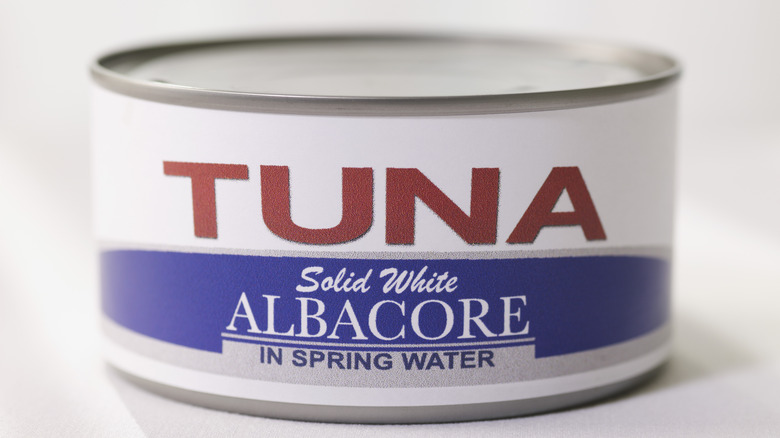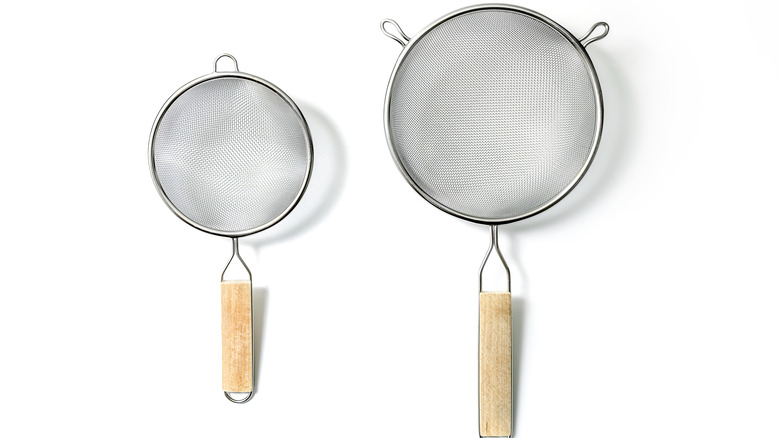Why You Definitely Don't Need A Tuna Press
The kitchen tool aisles of home goods departments contain a myriad of devices for every possible task a cook may need to complete, but if we're being honest, some of them are completely unnecessary. For every necessary good knife and high-quality skillet you can buy, there is also a garlic press or novelty fruit-shaped fruit saver, which are just destined to take up space in a drawer. Among those unnecessary devices is the tuna press.
For those who are unaware of this somewhat obscure tool, it does only one thing: It squeezes the water out of canned fish so that your sandwiches and casseroles don't get soggy. While that's obviously a useful function, it definitely does not warrant an entirely separate device. These devices come in a range of sizes, from small can-sized strainer baskets that you literally press into the can of tuna and flip upside down over the sink to large, multi-hundred dollar devices similar to a fruit press. So instead of investing in another kitchen tool, reach for a strainer instead.
A strainer serves as a simpler alternative
Most people are not cracking open industrial-sized cans of seafood every time they want to make tuna salad, so having an entirely separate device to remove the water from your tiny can of grocery store tuna is definitely not worth the money or the space in your cabinet or counter. Instead, the best idea is to buy a small, fine strainer which you can dump any sized can of meat or vegetables into and simply use a spoon to press any excess liquid through the mesh.
And if you think about it, most cans are small enough that you can drain the fish straight from the tinned package by opening the lids slightly to make an opening and pressing down with your fingers — no strainer and definitely no tuna press needed. But if you don't already have one, you can buy a small handled strainer in any grocery store or on Amazon for less than $10. And unlike a tuna press, they are much more versatile and can come in handy for everything from juices to cocktails to sifting flour for baking — not just drying out fish.

